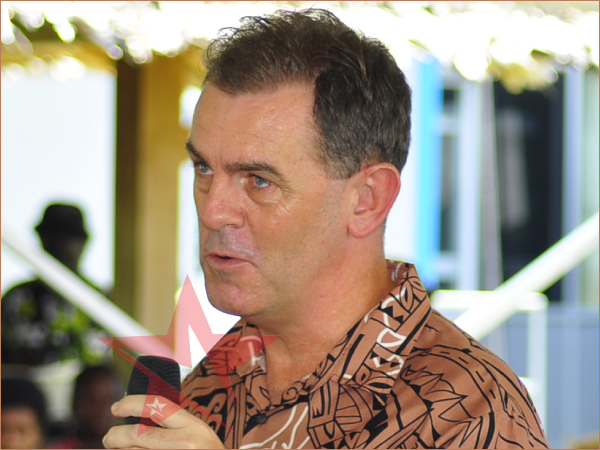Commissioner of Lands (COL) Alan McNeil has defended the publication of a list of land parcels in The Island Sun newspaper on Friday, 28 March and 3 April 2025, stating that it was in the best interests of both the government and the public.
This follows a request from AS Willy Law Office—representing Levers Solomon Limited (LSL)—for the Commissioner to withdraw the notice. Mr McNeil refused, according to email correspondence.
In response, AS Willy Law Office filed an urgent application with the High Court on 7 April 2025, seeking interim orders to stop the publication. The following day, the court granted ex parte orders.
The High Court, through Deputy Chief Justice Rex Foukona, issued the orders on 8 April 2025. They are to remain in effect until 30 May 2025. According to court documents, non-compliance with the order may result in a fine or imprisonment for the Commissioner.
Despite the ruling, Commissioner McNeil maintains that the notice is accurate and lawful. “There is nothing untrue or incorrect in the notice, and LSL does not allege otherwise,” he said.
He further stated that he had not yet been formally served with the court application or the interim orders and had no opportunity to respond before they were granted. “The Commissioner believes it was wrong for the High Court to issue the orders without hearing from him, and he will be applying to have them discharged,” McNeil added.
The Commissioner explained that in 2020, the Solomon Islands Cabinet decided to reclaim all of LSL’s Fixed Term Estates (FTEs) in Guadalcanal through forfeiture and compulsory acquisition. The Commissioner and the then Minister for Lands acted accordingly, with public notices issued in compliance with legal requirements.
“Those actions were publicly advertised. The law requires public notice of compulsory acquisition, and in the public interest, I also notified the public about the forfeitures,” said McNeil.
LSL has since challenged those actions in the High Court, where the matters remain pending. However, McNeil said the Commissioner’s office recently became aware that LSL representatives were still attempting to sell some of the contested land.
“It is clearly wrong to sell land that the government has already indicated it intends to reclaim,” he said. “There is a high risk that unsuspecting buyers could pay for land titles that LSL may ultimately lose in court.”
McNeil noted that the government has also been considering alternative means to reclaim LSL’s land, including negotiated transfers or voluntary surrenders of the FTEs. “If the government chooses that route, it needs to know whether any of the FTEs have already been promised or sold to third parties,” he said.
“It would not be in the government’s best interest to purchase land that has already been sold, or for which deposits have already been made,” he added.
McNeil drew comparisons with a recent High Court ruling involving Pari Development Company’s FTEs in Noro, Western Province. He said the circumstances were nearly identical to LSL’s case.
“Pari Development wasn’t developing its land—just selling it, just like LSL,” he said. “While the matter was still before the court, I found evidence that they were continuing to sell land under forfeiture.”
He cited the High Court’s ruling in the Pari case, noting that while the judge set aside his claims of ongoing sales, the court acknowledged the seriousness of such actions. “The judgment noted that if the Commissioner is satisfied a claimant knowingly sold land that was under forfeiture, it could constitute serious fraud warranting referral to the Commissioner of Police,” McNeil said.



